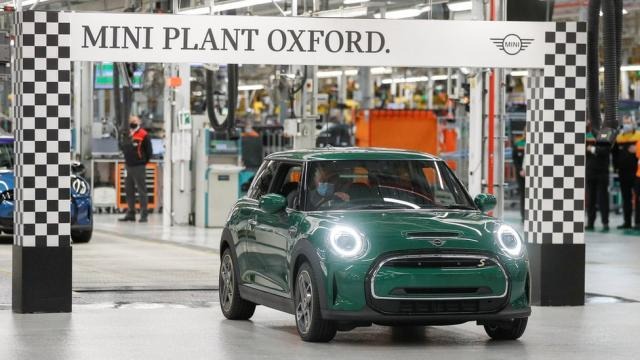BMW, the German luxury car manufacturer, has announced plans to invest £400m in its Mini plant in Oxford, UK, in order to expand its production capacity for electric vehicles (EVs). The move comes as the automaker prepares to launch a new version of its iconic Mini model, which will be fully electric.
The investment will fund the construction of a new production facility on the Oxford site, which will be used to manufacture battery packs for the upcoming EVs. It will also create around 500 new jobs, taking the total workforce at the plant to around 5,000.
The investment is part of BMW’s broader strategy to shift towards electric mobility, as it seeks to comply with increasingly strict emissions regulations around the world. The company aims to have 25 electrified models in its range by 2023, with more than half of those being fully electric.
The new electric Mini is expected to be launched in 2023, and will be the first all-electric Mini to be produced at the Oxford plant. The vehicle will be based on the same platform as the BMW i3, which is already in production at the automaker’s plant in Leipzig, Germany.
BMW has said that the investment in the Oxford plant will allow it to produce up to 180,000 electric Minis per year, up from the current production capacity of around 100,000. The company expects that by 2025, around 50% of the Minis produced at the Oxford plant will be fully electric.
The investment is a major boost for the UK automotive industry, which has been struggling in recent years due to a combination of Brexit uncertainty and the impact of the Covid-19 pandemic. The Mini plant in Oxford is one of the largest employers in the area, and the new investment is expected to provide a significant boost to the local economy.
In addition to the investment in the Oxford plant, BMW has also announced plans to build a new production facility for electric drivetrains in Germany. The new facility will be located in the city of Regensburg, and will create around 2,000 new jobs.
The company has said that the new facility will play a key role in its electrification strategy, and will produce drivetrains for a range of electrified models, including the Mini and BMW i3.
The investment in the Oxford plant and the new production facility in Regensburg are part of BMW’s broader efforts to become a leader in the field of electric mobility. The company has said that it expects to have over 7 million electrified vehicles on the road by 2030, and has committed to reducing the carbon emissions of its vehicles by at least 80% by 2030, compared to 2019 levels.
The move towards electric mobility is not without its challenges, however. While EVs are becoming increasingly popular, they still account for a relatively small proportion of total global vehicle sales. In addition, there are concerns around the sustainability of the materials used in EV batteries, as well as the infrastructure needed to support widespread EV adoption.
Despite these challenges, BMW’s investment in the Oxford plant and its broader commitment to electric mobility are a positive step towards a more sustainable future for the automotive industry. By investing in new technology and expanding production capacity for electric vehicles, BMW is positioning itself as a leader in the field of electric mobility, and is helping to drive the transition towards a more sustainable transportation system.

